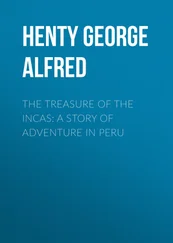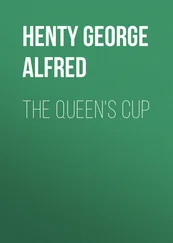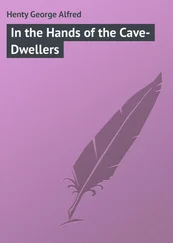George Henty - The March to Magdala
Здесь есть возможность читать онлайн «George Henty - The March to Magdala» — ознакомительный отрывок электронной книги совершенно бесплатно, а после прочтения отрывка купить полную версию. В некоторых случаях можно слушать аудио, скачать через торрент в формате fb2 и присутствует краткое содержание. Жанр: foreign_prose, на английском языке. Описание произведения, (предисловие) а так же отзывы посетителей доступны на портале библиотеки ЛибКат.
- Название:The March to Magdala
- Автор:
- Жанр:
- Год:неизвестен
- ISBN:нет данных
- Рейтинг книги:4 / 5. Голосов: 1
-
Избранное:Добавить в избранное
- Отзывы:
-
Ваша оценка:
- 80
- 1
- 2
- 3
- 4
- 5
The March to Magdala: краткое содержание, описание и аннотация
Предлагаем к чтению аннотацию, описание, краткое содержание или предисловие (зависит от того, что написал сам автор книги «The March to Magdala»). Если вы не нашли необходимую информацию о книге — напишите в комментариях, мы постараемся отыскать её.
The March to Magdala — читать онлайн ознакомительный отрывок
Ниже представлен текст книги, разбитый по страницам. Система сохранения места последней прочитанной страницы, позволяет с удобством читать онлайн бесплатно книгу «The March to Magdala», без необходимости каждый раз заново искать на чём Вы остановились. Поставьте закладку, и сможете в любой момент перейти на страницу, на которой закончили чтение.
Интервал:
Закладка:
From Sooro to Rayray Guddy is too far a march to be made in one day along such a road as there is at present, and accordingly it is generally broken at a spot called Guinea-fowl Plain, where there is a well yielding a small supply of water, the colour of pea-soup. We had had quite sufficient of night-marching previously, and, having passed one day at Sooro, we started at ten o’clock the following morning. We had intended to have started an hour earlier; but making a start here is a very different thing from sending for a cab at an appointed time to catch a train. In the first place there are the trunks, which have been opened the night before, to close; there is the tent to strike and pack up. Then at the last moment you discover that your servants have not washed up the breakfast-things, and that your mule-wallah has not yet taken his animals to water. At last, when all is ready, comes the important operation of loading the four baggage-animals. Each load has to be adjusted with the nicest precision, or the very first piece of rough ground you arrive at, round goes the saddle, and your belongings come to the ground with a crash. With our two mules we have the “Otago saddle,” which is excellent. Indeed, in the opinion of almost everyone here, it is by far the best of the rival saddles. Upon these saddles we pack our own baggage, and once fairly adjusted this is pretty safe for the day. Not so the other animals, for which we have common mule-saddles. Upon these is piled a multifarious collection of bundles. Our servants’ five kits, our animals’ rugs and ropes, our tents, two sacks containing cooking-utensils and numerous etceteras, and a water-skin for use upon the road. The actual weight that these animals have to carry is not so great as that borne by the others; but the trouble of adjusting and fastening on is at least ten times as great. The loads have frequently to be taken off three or four times, and then when we think all is right, and get fairly into motion, we have not gone twenty yards before there is a gradual descending motion observed on one side of an animal, and a corresponding rise of the opposite burden, and we are obliged to stop and readjust everything, or in another minute or two the whole would have toppled over. These things ruffle the temper somewhat, and our equanimity is not improved by the intense stupidity which our native servants always manifest upon these occasions. They seem to have no eye. They heap bundles on the side which was before palpably the heaviest; they twist cords where cords can be of no earthly use: altogether they are horribly aggravating. However, by this time I am getting accustomed to these things, and take matters into my own hands, and insist on things being done exactly as I direct them. At ten o’clock, then, we were fairly off, and I do not know that I ever rode through a more monotonous valley than that between Sooro and Guinea-fowl Plain. It was the counterpart of that I described in my last letter as extending between Koomaylo and Lower Sooro. A dead flat of two or three hundred yards across, with the torrent’s bed winding across it, and spur after spur of mountain turning it every quarter of a mile. Some of the mountain views which we saw up the ravines were certainly very fine, but it became monotonous in the extreme after six hours’ march at the rate of little over two miles an hour. The vegetation, however, had changed since the preceding day. The thorny bush no longer covered everything, but a variety of shrubs now bordered the path, and the diversity of their foliage was a relief to the eye. Immense quantities of locusts were everywhere met with, making the ground yellow where they lay, and rising with a rustling noise, which was very discomposing to the horses at our approach. They did not eat all the shrubs, but the species upon which they fed were absolutely covered with them, and most of their favourite plants were stripped completely bare. Monkeys, or rather baboons, still abounded: we saw numerous large troops of them, which must have been over a hundred strong. It was about five o’clock when we reached Guinea-fowl Plain, which may have guinea-fowls, although we saw none; but which is most certainly not a plain, for at the place where the well is the valley is narrower than it had been for miles previously. Here we found some really large trees, and under them we pitched our tent. It was not long before our servants had fires lighted and dinner in a forward state. There were two or three other parties who had arrived before us, and, as it got dusk, all lighted fires; and, as each party, with their cooking and grooms’ fires, had at least three bonfires going, it made quite a picturesque scene. The night was raw and cold, and we had a few drops of rain. It was fortunate that we had brought water with us for cooking purposes, for the water in the well was perfectly undrinkable.
The next morning we were again off early for our longest journey, that on to Rayray Guddy, where food would be procurable for horse and man, neither one nor the other being obtainable at Guinea-fowl Plain, where there is no commissariat station. We had carried our own food, and a small portion of grain for the horses; but they would have fared very badly had we not met some natives in the pass with a bundle of hay, and done a little barter with them for rice. The valley for the first twelve or fourteen miles from Guinea-fowl Plain greatly resembled in its general features that we had passed the day previously, but the vegetation became more varied and interesting every mile. We now had great trees of ivy, we had the evergreen oak, and occasionally gigantic tulip-trees. We had great numbers of a tree, or rather large shrub, of the name of which I am ignorant; its leaves more resembled the sprays of the asparagus when it has run far to seed than any other foliage I know, but the growth of the shrub was more like a yew. Upon its branches were vast quantities of a parasite resembling the mistletoe, whose dark-green leaves afforded a fine contrast to the rather bluish tint of the tree. Climbing everywhere over the trees, and sometimes almost hiding them, were creepers of various kinds; on the ground grew vast quantities of the aloe. There were, too, numerous cacti of various kinds, some thick and bulky, others no thicker than a lady’s little finger, and growing like a creeper over the trees. But, strangest of all, upon the hill-sides grew an immense plant, or rather tree, of the cactus tribe, which I had never seen before. It started by a straight stem fifteen or twenty feet high, and thicker than a man’s body. This branched out into a great number of arms, which all grew upwards, and to just the same height, giving it a strange and formal appearance, exactly resembling a gigantic cauliflower. I believe its name is Euphorbia candalabriensis , but do not at all vouch for this. Some of the mountain slopes were quite covered with this strange tree, but as a general thing it grew singly or in pairs. The tulip-trees were superb; they grew generally in rocky places, and with their huge twisted trunks, and glossy green leaves, and limbs more than a hundred feet long, they were studies for a painter.
At about three miles from Rayray Guddy the valley narrowed to a ravine, and we came upon running water. The pass from here to the station is steep and difficult, but nothing to that at Sooro. Having drawn our rations, and received the unwelcome intelligence that there was no hay, and only the scantiest possible amount of grain for our animals, we established our camp and went up to look at the land transport division, about a quarter of a mile higher up the valley. There were four or five hundred mules and ponies here, in good order, but hardly good condition; in fact, the work has been hard and forage scant. How hard the work has been, our journey of the two preceding days had testified. All along the line of march we had come across the carcasses of dead animals, from which great vultures rose lazily at our approach. As we approached Rayray Guddy the remains of the victims occurred much more frequently, and the air was everywhere impregnated with the fœtid odour. This was only to be expected, as the poor animals had been obliged to endeavour to accomplish the march of thirty miles from Sooro without food, and in most cases without water. No time should be lost in forming a small commissariat dépôt at Guinea-fowl Plain, where a ration of hay and grain could be served out to the animals as they pass through. The work these baggage-animals have to go through is extremely severe, and their half-starved appearance testifies that they have not sufficient food served out to them, and to expect them to do two days’ work on their one day’s scanty rations is a little too much even from mules. We found our friends who had started before us from Guinea-fowl Plain encamped up there with Captain Mortimer of the transport train. It was proposed that we should throw in our mess with them. We accordingly returned to our own encampment, took our meat and rum, our plates and knives and forks, and marched back again. In an hour dinner was ready, and in the mean time I was glad of an opportunity of inquiring how this advanced division of the transport train had got on. I found that they had, like the one down at Zulla, had the greatest trouble with their drivers. The officer complained bitterly of the class of men who had been sent out – Greeks, Italians, Frenchmen, Spaniards, the mere sweepings of Alexandria, Cairo, Beyrout, and Smyrna. The Hindoo drivers, he said, upon the whole, worked steadily, and were more reliable than the others, but were greatly wanting in physical strength. The Persians, on the contrary, were very strong and powerful men, and could load three mules while a Hindoo could load one; but they had at first given very great trouble, had mutinied and threatened to desert in a body, but, upon the application of the lash to two or three of the ringleaders, things had gone on more smoothly. The Arab drivers had almost all deserted. Even up here the mules still suffer from the disease which prevailed down upon the plain, and which carried off a hundred horses of the 3d Native Cavalry. It is very sudden in its action, and is in nearly every case fatal. The animals seem seized with some internal pain, arch their backs, and become rigid. In a short time the tongue grows black, a discharge takes place from the nostrils, and in a few hours, sometimes not more than one, from the time he is attacked, the animal is dead. At present, as with our cattle-disease, all remedies are ineffectual. Animals in good condition are more liable to be attacked than are the poorer ones. After dinner we returned to our tent, where, however, we did not pass a remarkably-pleasant night. In the first place, it was bitterly cold – the temperature of Rayray Guddy is indeed colder than it is here; and in the second, a mule had broken loose from its head-ropes, and came down to our encampment. Five or six times it nearly upset our tent by tumbling over the tent-ropes, in addition to which it made our horses so savage by going up among them, that we were afraid of their breaking loose. Four or five times, therefore, did we have to get up and go out in the cold to drive the beast away with stones. The grooms were sleeping at their horses’ heads, but were so wrapped up in their rugs that they heard nothing of it. The next morning it was so cold that we were really glad to be up and moving, and were on our way at a little before eight. The first six miles of the road is narrow and winding, and is as lovely a road as I ever passed. With the exception only of the narrow pathway, the gorge was one mass of foliage. In addition to all the plants I have mentioned as occurring below, we had now the wild fig, the laburnum, various sorts of acacia, and many others, One plant in particular, I believe a species of acacia, was in seed; the seed-pods were a reddish-brown, but were very thin and transparent, and when the sun shone upon them were of the colour of the clearest carmine. As these shrubs were in great abundance, and completely covered with seed-pods, their appearance was very brilliant. Among all these plants fluttered numerous humming-birds of the most lovely colours. Other birds of larger size and gorgeous plumage perched among the trees at a short distance from the path. Brilliant butterflies flitted here and there among the flowers.
Читать дальшеИнтервал:
Закладка:
Похожие книги на «The March to Magdala»
Представляем Вашему вниманию похожие книги на «The March to Magdala» списком для выбора. Мы отобрали схожую по названию и смыслу литературу в надежде предоставить читателям больше вариантов отыскать новые, интересные, ещё непрочитанные произведения.
Обсуждение, отзывы о книге «The March to Magdala» и просто собственные мнения читателей. Оставьте ваши комментарии, напишите, что Вы думаете о произведении, его смысле или главных героях. Укажите что конкретно понравилось, а что нет, и почему Вы так считаете.












